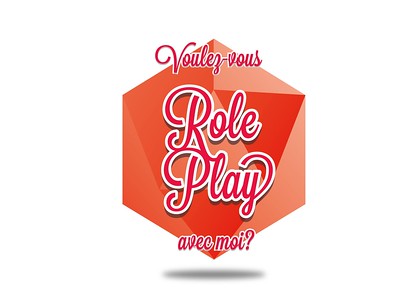[Podcast] Voulez-vous roleplay avec moi? #3 : Inclusive Design
THE PODCAST ABOUT FRENCH SPEAKING ROLEPLAYING GAMES THAT YOU CAN PLAY EVEN THOUGH YOU DON’T SPEAK FRENCH

Let’s dig into the french theory !
This episode inaugurates a serie of exchanges between mentors from the international gaming scene and game theoricians from the french-speaking scene.
For this first attempt, we receive Ron Edwards (Sorcerer, The Forge, Adept Play…) and we talk about a gaming philosophy : inclusive design.
With also Thomas Munier and Julien Pouard.
And… don’t forget… It’s only called a roleplaying game if it come from the French region of Role !
(listening time: 56 min)
(reading time: 3 min)
Listen to or download the podcast
Listen on Spotify

Sultry/sulky/silly, cc-by
Credits :
Logo : (C) Edward F
Jingle : Frédéric Lardon, cc-by, album Robot Feelings
Resources :
Voulez-vous roleplay avec moi?’s collection on Itch.io
Voulez-vous roleplay avec moi?’s Discord Server
Notions :
Inclusive design (see definition in french)
Inclusive design is a design philosophy (including the design of games and practices) aimed at being able to include the greatest diversity of people, whether in terms of identity or playing sensibilities.
Some of the challenges of inclusive design include:
– make the experience accessible to minoritized people
– make it accessible to people with disabilities
– make people « in the norm » play with the aforementioned people
– bring together different playing sensibilities
– bring together beginners and experienced players
– mix narrative genres
Two trends can be observed in inclusive design: designing a wide variety of game experiences (specialized game approach) or designing highly malleable game experiences (toolbox approach).
Play design (see definition in french)
This term proposed by kF, in opposition to game design, brings together all the methods aimed at designing not games but practices.
The play design can be limited to a group of players, or relate to the development of a role-playing scene, such as for example Free Kriegsspiel Revival or Israeli Freeform.
Cost of entry (see definition in french)
This term, attributed to Olivier Caïra, refers to the evaluation of the difficulty of entering into role-playing practice in general or into a game or a role-playing scene in particular.
This entry cost can be low or high depending on the culture, the logical-mathematical level, or the theatrical or improvisational acting skills required by the hobby in general or the role-playing game/scene in particular.
Playing capacity (see definition in french)
Refers to a player’s ability to play, in other words the range of attitudes and moves that are possible for her in her career as a player in general and during the game in particular.
The ability to play at a time T depends on many factors (culture of the player, composition of the table, nature of the game played, device, etc.).
Playing ability can be broken down into player skills
Pokemon chaser syndrome
Attitude which consists in considering minoritized or disabled people as simple recruitment targets, in order to be able to boast of having an inclusive system. This runs the risk of forcing the recruitment of these people within a system that is not necessarily well suited to them.
radical participation
This term, imported from Burning Man, designates the commitment of the player to be responsible for the quality of her own experience.
soft play space
easily accessible play space (in LARP) where plot events often take place. This space is reserved for soft roleplay interactions (no attacks, no horror). It is designed as an appropriate space for people with reduced mobility and as an in-game rest area.
withdrawal right (see definition in french)
The right of withdrawal is the possibility, implicit or explicit, for a player (or even an orga if we are talking about LARP), to withdraw from the game at any time for various reasons that she does not need to mention:
– physical or mental fatigue
– emotional safety issue
– offside obligation
It is important to specify that the right of withdrawal is not acquired in all game cultures. It can be problematic to apply it in certain systems (character essential to the plot, game balance, strong dramatic links with the other characters). The right of withdrawal is more easily applicable in RPGs and LARPs of the sandbox or improvisation type.
The right of withdrawal can be combined with an open table practice, in which case it is also possible to come back into play.
In the case of LARPs, the right of withdrawal can be facilitated by the presence of an offside break room or a safe space.
Atomistic (see definition in french)
Atomistics is a way of analyzing the games in general and the role-playing games in particular by breaking it down into four atoms:
– social game
– tactical game
– moral game
– aesthetic game
Atomistics assumes that almost all games and gaming practices have these four atoms in varying concentrations.
Bibliography :
[Article, in english] Axiel Cazeneuve, The paradox of inclusivity, on Nordic Larp
[Book, in french] Olivier Caïra, Jeux de Rôle : Les forges de la fiction, CNRS Editions

It was such an honor to chat with one of the personalities from The Forge forum. It was also an opportunity, I think, to lay down a real oral and written basis around this notion of inclusive design that we are trying to develop in France or elsewhere.
J’aimeJ’aime
This podcast is collaborative so join the Discord server if you want to participate in any way ! https://discord.gg/aTVdgtECg9
J’aimeJ’aime